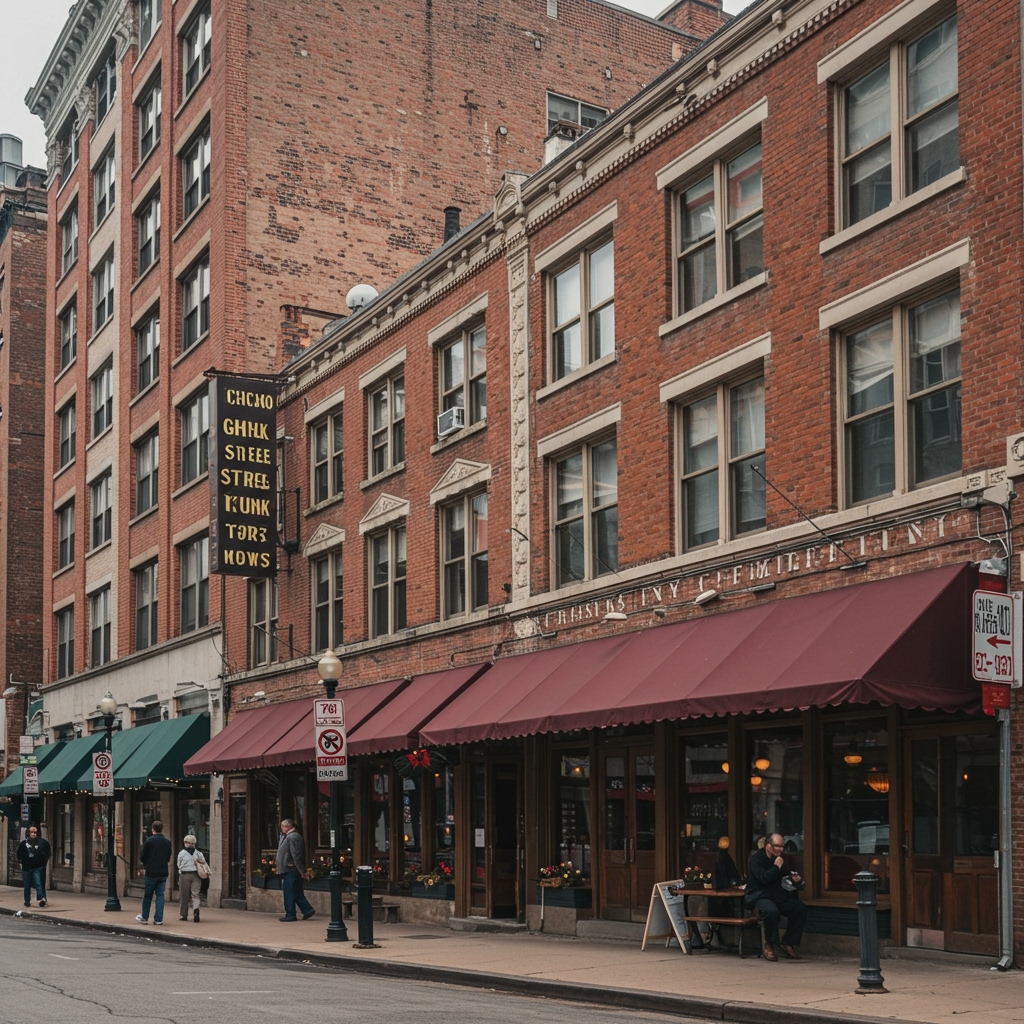CHICAGO – Chef Grant Achatz and the renowned Alinea Group have announced the impending closure of their acclaimed Chicago restaurant, Fire, located in the city’s rapidly evolving Fulton Market district. The establishment, which commenced operations in November 2024, is scheduled to cease service permanently on June 28, 2025, less than a year after its debut.
The decision to close Fire, a venture anticipated as the Alinea Group’s first new restaurant opening in eight years, has been attributed primarily to the escalating cost of real estate in the prime Fulton Market area. According to Alinea Group CEO Jason Weingarten, the group has experienced a staggering increase in rental expenses for the space, citing a 500 to 600 percent rise since they first occupied the location in 2016, when it housed their previous concept, Roister.
The Financial Strain of Urban Real Estate
Fulton Market, once a gritty meatpacking and industrial hub, has undergone a dramatic transformation over the past decade, evolving into a vibrant center for high-end restaurants, trendy bars, luxury retail, and corporate offices. This rapid gentrification has driven property values and lease rates skyward, posing significant challenges for many businesses, including those in the hospitality sector.
Weingarten’s remarks underscore the intense financial pressure that even successful culinary operations face in such competitive and expensive markets. While Fire was praised for its offering, the economics of its physical location ultimately proved untenable given the dramatic increase in overheads.
“Fire was delicious, and it comes in and at a price point that’s really unique for this market,” Weingarten stated, highlighting the restaurant’s quality and value proposition despite the challenging economic environment. This suggests the closure was not a reflection of the restaurant’s culinary performance or customer reception, but rather a consequence of external market forces, specifically the steep trajectory of rental costs in Fulton Market.
A Brief but Bright Tenure
Fire opened its doors in November 2024, stepping into the space previously occupied by Roister, another Alinea Group establishment that had operated there since 2016. The launch of Fire was a significant event for Chicago’s dining scene, marking the return of the prolific Alinea Group to opening new concepts after an eight-year hiatus. The restaurant aimed to bring a distinctive culinary experience to the bustling Fulton Market, contributing to the area’s reputation as a gastronomic destination.
Despite its relatively short operational period, Fire quickly garnered attention within the Chicago food community. Its impending closure, therefore, represents a notable shift in the landscape of one of the city’s most dynamic neighborhoods.
Future Horizons for Alinea Group
The closure of Fire in Chicago does not signal a retreat for the Alinea Group, which also operates internationally acclaimed establishments like Alinea, Next, and Aviary. CEO Jason Weingarten confirmed that the group remains a sought-after entity in the global hospitality market.
“We are being pursued by hotel groups and developers globally to open locations of either Fire or Roister,” Weingarten revealed, indicating strong interest in bringing the group’s concepts to new markets outside of Chicago. This global demand suggests that while the Fulton Market location for Fire proved challenging, the underlying concepts and the Alinea Group brand retain significant value and potential for expansion.
The group is actively exploring these opportunities and anticipates making announcements regarding one or two new restaurant openings by the end of 2025. These future ventures could potentially see the Fire or Roister concepts re-emerge in different, potentially more economically viable, locations either domestically or internationally.
The Broader Context
The closure of Fire in Fulton Market serves as a potent example of the challenges faced by even well-regarded restaurants in urban centers with rapidly appreciating real estate. While culinary innovation and critical acclaim are essential for success, they must be balanced against the often-unpredictable and soaring costs associated with prime physical locations. The case of Fire highlights how swiftly market conditions can shift and impact even established restaurant groups.
The news of Fire’s closure was initially reported by Anne Erickson. As the final day of service approaches on June 28, 2025, Chicago’s culinary community and diners will mark the brief tenure of a restaurant concept cut short by the economic realities of one of the city’s most expensive neighborhoods.














